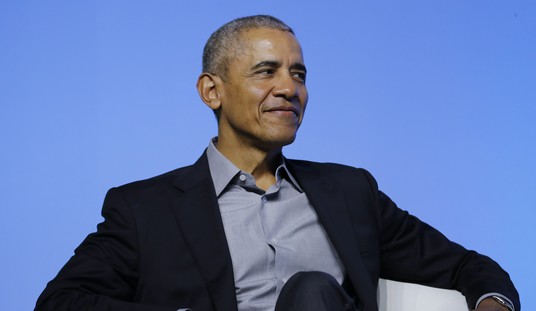[UPDATE 4:25 p.m., Friday, Dec. 6]
The jury in the New York trial of Daniel Penny deadlocked a second time this afternoon, so around 3:30 p.m., Assistant District Attorney Dafna Yoran requested that the top count, manslaughter in the second degree, be dismissed. Manhattan Supreme Court Justice Maxwell Wiley agreed and signed off on the request.
The jury is now deliberating over the lesser charge, criminally negligent homicide, which carries no minimum sentence and a maximum of four years in prison.
The jury has been at work since Tuesday afternoon.
[ORIGINAL STORY]
The 12-person jury deciding the fate of Daniel Penny, a 26-year-old architecture student and Marine veteran charged in the 2023 death of Jordan Neely, has sent a note to Manhattan Supreme Court Justice Maxwell Wiley saying they are unable to reach a verdict on the most serious charge of second-degree manslaughter. “At this time, we are unable to come to a unanimous vote on count 1,” read the note, which was sent just after 11 a.m. Friday.
Until and unless jurors acquit Penny of the manslaughter charge, they may not move on to consider the lesser charge of criminally negligent homicide in the death of the mentally ill homeless man who menaced passengers inside the subway car in which Penny was riding.
Judge Wiley gave jurors a so-called Allen charge — an order to continue deliberations and make every effort to reach a unanimous verdict. The more serious charge of second-degree manslaughter carries a maximum sentence of up to 15 years, while the lesser charge of criminally negligent homicide is punishable by up to four years in prison. There is no minimum required sentence for either charge.
On May 1, 2023, 30-year-old Jordan Neely burst onto a car of the uptown F train at the Second Ave. station in Manhattan. He tore off his jacket and began moving about erratically and ranting that he was going to kill people, and he didn't care if he died or went to prison. The homeless man was in the throes of severe schizophrenia and under the influence of N2, a synthetic marijuana that can have a similar effect to cocaine.
The passengers in the subway car were understandably frightened. One of them, then-24-year-old Daniel Penny, judged that six-foot-one Neely's behavior was menacing enough that the man needed to be restrained before he harmed someone. A trained Marine, Penny came up behind Neely and put him into a chokehold to get him under control. Two other passengers helped Penny restrain Neely. After approximately six minutes, Neely had gone limp, and Penny released his hold and then placed him in a recovery position. But emergency responders were not able to revive Neely, and he was declared dead.
You'll be shocked to hear that Manhattan prosecutor Alvin Bragg decided to charge Penny with second-degree manslaughter as well as criminally negligent homicide, both felonies. Bragg, as most PJ readers know, has become notorious for releasing violent, mentally ill criminals back onto the streets of New York while choosing to prosecute anyone courageous enough to stand up and defend himself or others from these loose cannons. Bragg, who is black, is known for coming down especially hard on non-black males who act defensively while overlooking violent crimes committed by black New Yorkers. (Neely was black, and Penny is white.)
Neely had struggled terribly with mental illness since he was a teenager, when his mother was strangled to death by her boyfriend. He grew into a criminally violent adult who had been arrested over 40 times, including for another subway incident in which he punched an unsuspecting 67-year-old woman hard enough to shatter her orbital bone and break her nose. This is the type of person Bragg thinks is just fine to release back into the public.
Two weeks ago, the court released the full video of Penny's interview with NYPD Detectives Michael Medina and Brian McCarthy right after the incident. Penny, unaware that Neely had died, explained why he had used what he judged to be the necessary force to subdue the homeless man. "Some guy came in, he's like — whipped his jacket off, and he's like, 'I'm gonna kill everybody, I'm gonna — I can go to prison forever, I don't care, I can do this." Penny said he grabbed Neely from behind because he was "acting like a lunatic, like a crazy person." Penny mentioned more than once that while he was trying to control Neely, who was "rolling around, still going crazy," he asked for someone to call the cops, which someone did; they arrived moments later.
Penny said that Neely "absolutely" seemed like he was on something. He mentioned that lately, people had been smoking "K2" and pushing others in front of subway trains. He told the detectives that he did not apply pressure to Neely's neck because he "just wanted to keep him from getting to people."
"I'm not trying to kill the guy," Penny explained. "I'm just trying to make, like, de-escalate the situation."
"What made you want to get involved?" asked a detective.
"Well, I mean like, he's threatening people, and like, I'm not a confrontational guy. But … I felt the need to, you know, step in because there's women and children on the train. I'm sure you'll [understand]" (said to the detective who is a fellow Marine). "There's ladies there that will vouch for me."
"Did you feel like someone's life was in danger?" a detective asked.
"One hundred percent," said Penny.
You can watch the pertinent parts of the interview here.
During the trial, prosecutors and defense attorneys disagreed about the cause of Neely's death. AP reported during the trial:
[Defense witness Dr. Satish Chundru] told jurors that Neely’s medical records and bystander video don’t show telltale signs of known types of fatal chokeholds.
Among the discrepancies, he said: the location and extent of bruising on Neely’s neck, and the small amount of petechiae — small red spots caused by subsurface bleeding — on his eyelids.
“In your opinion, did Mr. Penny choke Mr. Neely to death?” defense lawyer Steven Raiser asked.
“No,” replied Chundru, who has worked as a medical examiner for county governments in Florida and Texas.
He said Neely died from “the combined effects” of synthetic marijuana, schizophrenia, his struggle and restraint, and a blood condition that can lead to fatal complications during exertion.
“The chokehold did not cause death,” the pathologist said.
His testimony starkly contrasted with the findings of Dr. Cynthia Harris, the city medical examiner who performed Neely’s autopsy.
She told jurors earlier in the trial that Neely suffered “an asphyxial death” as a result of the chokehold. She called it “profoundly improbable” that Neely’s death was due to synthetic marijuana use and sickle cell condition, which is related but not equivalent to sickle cell disease.
Within the medical examiner’s office, “the consensus was unanimous” that Neely had died from the chokehold, Harris said, adding: “There are no alternative reasonable explanations.”
A GiveSendGo account set up for Penny's legal defense has so far raised over $3.2 million. Prior to his trial, Penny released a video explaining what happened that day in his own words:
THIS IS A DEVELOPING STORY. CHECK BACK HERE FOR ADDITIONAL DETAILS.










Join the conversation as a VIP Member